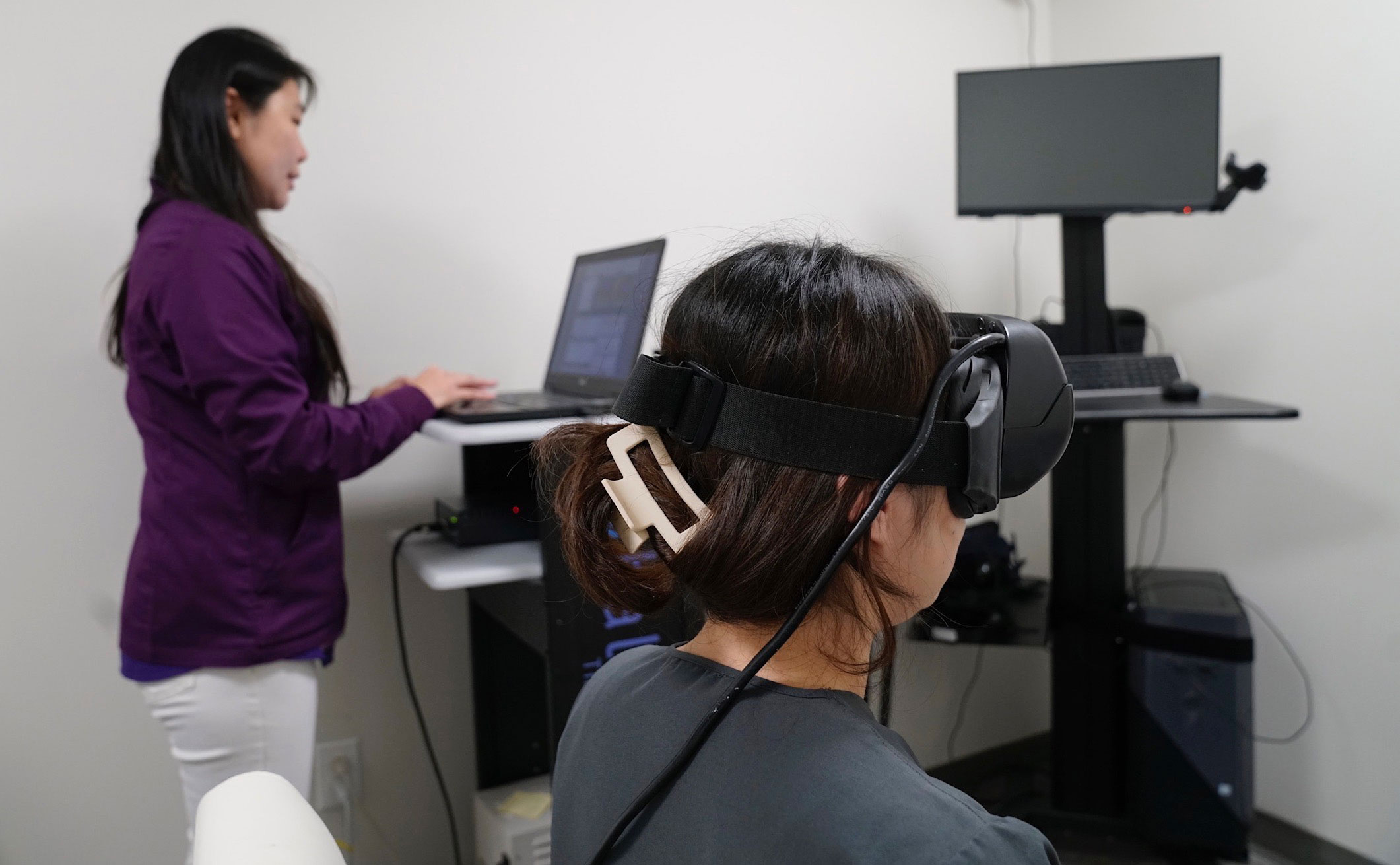New Patients
(201) 212-4079
Existing Patients
(201) 947-4777

We provide specialized vestibular testing to accurately diagnose balance and dizziness disorders by evaluating the function of the inner ear and its connection to the brain. Our comprehensive diagnostic approach includes advanced tools such as Videonystagmography (VNG) and caloric testing, which allow us to assess how well your vestibular system is working and to pinpoint the source of symptoms like vertigo, imbalance, and dizziness.
Videonystagmography (VNG) is a non-invasive test that uses infrared cameras to track and record involuntary eye movements (nystagmus) as you follow visual targets or move your head and body. Because the eyes and inner ears work closely together to maintain balance, these movements provide vital clues about possible dysfunctions in the vestibular system or brain pathways that control motion and stability. VNG testing includes positional, gaze, and tracking assessments, making it a powerful tool for diagnosing a variety of vestibular conditions.
Caloric testing, often performed as part of the VNG series, involves gently stimulating each ear separately with warm or cool air or water. This creates a temperature gradient in the inner ear, causing the fluid in the semicircular canals to move and trigger eye movements. By observing these responses, we can determine if one ear is responding differently than the other—a key indicator of unilateral vestibular loss or dysfunction. This is especially helpful for identifying conditions like vestibular neuritis, benign paroxysmal positional vertigo (BPPV), labyrinthitis, and other inner ear abnormalities.
By combining these tests, we gain a detailed understanding of your vestibular function, allowing for accurate diagnosis and tailored treatment plans. Whether you're dealing with chronic dizziness, sudden vertigo episodes, or unexplained imbalance, our vestibular testing process is safe, efficient, and designed to bring you clarity and relief. Our team of experienced specialists uses these insights to develop individualized care strategies, including physical therapy, medication, or lifestyle adjustments, helping you regain control and improve your quality of life.
